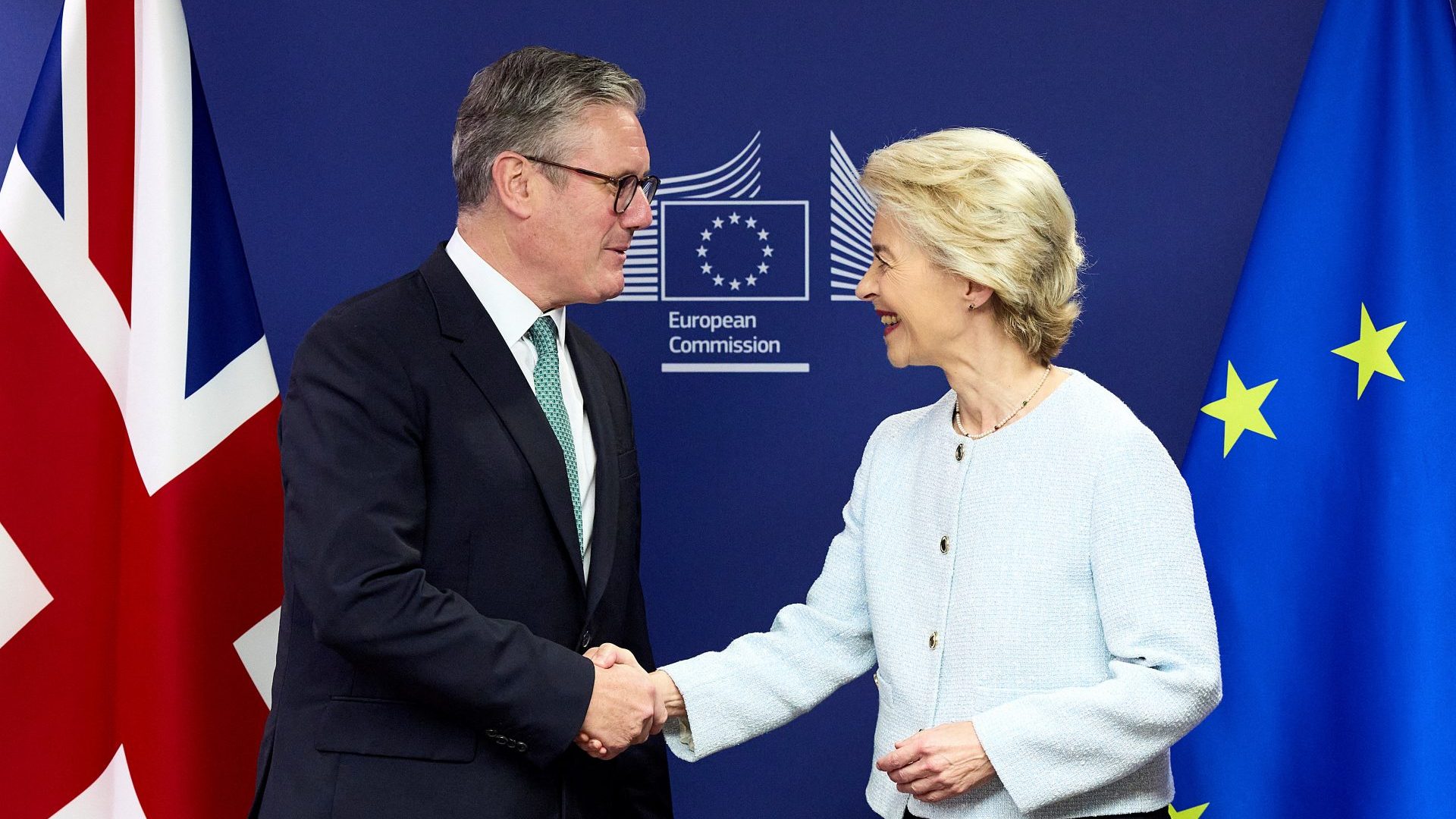The results of Keir Starmer’s trip to Brussels will have excited few readers of the New European. Those who want Labour to take the great leap – a declaration that Brexit has failed and that a second referendum must take place – were disappointed, again.
Yet the Brussels trip shows a path back to Europe still exists; just one that must be negotiated with baby steps. The challenge now for those whose ultimate aim is rejoining the EU is to nudge a nervous Starmer slowly towards Europe and rub out his red lines, without freaking him out. If those still horrified by Brexit play this right, they could start the process of slowly rolling Starmer some way towards undoing the most damaging elements of Brexit before the end of this parliament.
Even the leadership of many leading pro-EU groups in Britain now accept that the hardest Rejoin position is a pretty thankless one and that another strategy is needed. Any moves towards softening Brexit will need to be done step-by-step with the public’s full support, says Mike Galsworthy, chair of the European Movement UK.
“We need to do this one stepping stone at a time,” he said. “We need to pick up each of those stones and get clear public consent before moving on. If we don’t and try to move too fast, we create more ambiguity that can be easily undone by a future government – or worse, ignored by this government.”
If those most upset by Brexit really want to see the UK’s place in Europe partially restored by the end of this decade, they’ll need to get a lot more strategic than they’ve been since 2016.
Britain is now a long way out of the EU. Part of the effect of Boris Johnson’s infamous “oven-ready” deal is that it ensures that the gap between Brussels and Britain would grow over time.
Further to that, the government’s repeated refusals to implement the deal in full didn’t make undoing it easier; it created disputes over international law that broke down trust between London and Brussels in a serious way.
On a purely practical and technical level, rejoining the EU would be a 10-year project, at least. It would require trade-offs with Brussels that would amount to us being more “in” than we were before Brexit. This information is conspicuously absent when polls are published showing that most people regret Brexit and wish it hadn’t happened.
Since 2016, the hardest Brexiteers have repeatedly managed to get their way by screaming betrayal every time a politician makes the smallest concession to Europe. This is more of a problem for Starmer and Labour than it was for the Tories.
Why? His frontbench is full of people – including the prime minister himself – who voted Remain in 2016 and supported various flavours of a softer Brexit. This makes his government vulnerable to attacks from the Tories and Reform, who can accuse them of selling out Brexit.
The step-by-step approach isn’t just for a domestic British audience. EU diplomats and officials are privately still very sceptical of the UK. They like Starmer and believe his desire for a reset is sincere, but have also spent the past eight years paying close attention to British politics.
The idea that our European neighbours are chomping at the bit to fast-track a British return to any of the institutions is a total fantasy – regardless of what public statements European Commission officials might make.
When Starmer says that Britain won’t rejoin the EU in his lifetime, he could be right. That doesn’t mean British politics and the European institutions won’t have changed so much by then that the UK is in a completely different position within Europe compared to today.
So pro-Europeans may have no choice but swallow this and start working on what Galsworthy called “stepping stones”. There are obvious areas in the short term where the British government can be pushed to rub out their red lines with Brussels and get little public blowback. Youth mobility is one obvious area.
“Even Conservative voters don’t think that British citizens should have their rights diminished as a result of Brexit,” says Galsworthy. “That is an argument we can win. And it easily knocks on to a bigger conversation about musicians, other performers, students, scientists before a long, broader debate about mutual free movement.”
It’s not difficult to see how this strategy of slow rolling can be expanded. Youth mobility, for example, can also be rolled into a conversation about Erasmus. An honest conversation about Erasmus and its financial benefits for British universities opens the door for conversations about science and research programmes.
The endpoint here for many of the loudest pro-Europeans in Britain is to lay the ground for Britain once again being part of the single market by joining the European Economic Area. Unfortunately, the words “single market” raise the blood pressure of hardcore Leavers – along with some of the others that were part of the 2016-2019 Brexit lexicon. Others include “free movement” and “customs union.”
Avoiding the language of the Brexit years is essential if Europhiles want Starmer to listen to their pleas. “The last thing this government is going to do is reopen the Brexit debates of the last decade,” says Mike Buckley, director at the Independent Commission on UK-EU Relations.
“The last government wasted at least four years of parliamentary time. Politically it was disastrous for Labour.
“Labour is mindful of the Reform vote and their second place in nearly 100 Labour seats,” Buckley says. “Labour wants to stay in power and change the country, not get mired in old arguments and division – and rightly so.”
If campaigners want Starmer to listen, they should start with the thin end of the wedge. Running straight to free movement or the single market is the quickest way to ensure he shuts the door.
None of this will be music to the ears of people who wanted no Brexit at all. But it’s unlikely they will have a prime minister better for their cause than Starmer in the next decade.
If they want him to make a dent in Brexit, he will almost certainly need a second term in office. They should use his first to strategically work on those smaller stepping stones and create democratic consent to soften Brexit, issue by issue.
It might be frustrating and take longer than the most committed Europhiles want. Still, it’s possible that by slowly rolling out these ideas, they can build pressure on Starmer to put some of the bigger issues in his party’s next manifesto. That, ultimately, is where pro-Europeans need to win the argument, because Brexit is only ever going to be fully undone at the ballot box.
Cathartic though they may have been, no number of protests in Parliament Square or marches through London have had an impact on the outcome of Brexit. If Remainers really want to have their voices heard, they may need to get in the ear of a prime minister who is genuinely engaging with Brussels – not shout at him so loud he puts in his earplugs.



